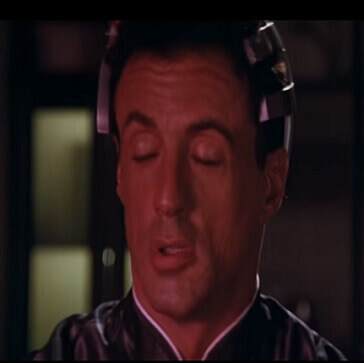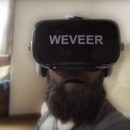The Mathematics of Romance: How Researchers Are Trying to Help Us Find Love
Can algorithms help match us with our ideal lovers?

By now we’re all pretty familiar with how scientists, as well as plenty of sex tech innovators, have been working on ways to provide us with all kinds of arousing options for sexual pleasure and erotic fulfillment, now and in the future.
But what, a few folks might be saying, about love?
Well, rest assured that when it comes to romance, there are quite a few out there also working toward the day when finding our perfect emotional as well as sexual partner will be as easy as swiping right.
We aren’t suggesting that getting to that point will be anything close to easy, but it hasn’t stopped researchers from trying.
The formula of love

Assistant professor at Western University in London, Canada, Dr. Samantha Joel has been scratching her head over this very idea.
A key problem she faced was that the dating industry, extremely dedicated to making systems for people to connect with one another, hasn’t been exactly forthcoming with their how their systems work—which is hardly unexpected, as this kind of programming is their financial bread and butter.
So Dr. Joel and her team started from scratch and, using a set of questionnaires filled out by volunteers plus a lot of hard work to compile and study the answers, came up with an algorithm that produced some surprising results.
Roughly, the core of their system was based on two factors. The first was how much a person liked or disliked a potential connection. The second flipped the script: in other words, how others reacted to you.
The result was that Dr. Joel’s formula was a pretty good indicator of mutual attractiveness. The problem, though, was that while this was a positive development, it didn’t really work with the complexity that is human desire.
Speaking to the BBC, she pointed out that there’s a lot more going on under the hood of human preference than mutual physical attraction:
My rating of whether I found you funny after meeting you will predict whether I like you, but my desire for a funny person and your measure of whether you are funny do not because we might not agree on a sense of humor.
This, you might say, is actually darned obvious. But it’s worth remembering that Dr. Joel’s work, plus that done by other researchers, is putting various pieces together that someday might result in something that could very well work.
Using a more flexible metric

Taking a different approach, Dr. Daniel Conroy-Beam from the University of California Santa Barbara created his own algorithm that instead used a greater array of data than physical attractiveness.
Here the result was more promising, though Dr. Conroy-Beam admitted the inherent flaw in his system—the weight we put on certain personal attributes can vary wildly from person to person.
Dr. Conroy-Beam’s study found a new element to consider: deal-breaker elements of a person’s dating profile lost a lot of their otherwise negative impact when there was a good chance of meeting the person face-to-face.
Putting this all together, Dr. Conroy-Beam came up with, again, something we might consider obvious. Quoted by the BBC in the same article, he said:
I think that people just aren’t actually very choosy. People feel like they need to be choosy because that is our culture. But realistically people are pretty open to a broad range of partners.
Someday a reality

While Dr. Conroy-Beam and Dr. Joel’s research might apparently show we still have a long road ahead of us, each approach—plus the work dating sites and others are putting toward the problem—nudges us a little closer toward the day when we might just have an app that can help us find true love.
A valuable tool might lie in using a form of sophisticated artificial intelligence, one developed to take into account not just how we answer a dating profile question but also why we gave a certain response.
Not that this would be easy. As these researchers have discovered, we human beings can be pretty complex creatures, contradictory in our likes and dislikes. It gets even more complicated when considering who we might feel romantic toward.
Still, an eventual answer might come down to acquiring enough data—on us as individuals as well as on our entire species. It’s kind of like trying to predict how a paper boat might float down a stream: just looking at it doesn’t work as well as knowing how fast the water and air are moving or the resistance of its material versus the viscosity of the water.
Knowing all that might not produce a perfect prediction, but it would be a lot better than just making an educated guess—which is where a lot of dating algorithms pretty much stand at present.
New ways to connect with one another

As our dating algorithms get more and more sophisticated and effective, they could very well reach a point where we’ll be able to truly connect with one another: not just in our likes and dislikes, personal preferences and all that, but in our personalities happily meshing with one another.
While such algorithms could lead to all kinds of sexual and romantic possibilities, making our search for fulfilling relationships so much easier to achieve, this kind of technology might also assist us in cooperating as an entire species.
By being able to more fully understand ourselves and how our personalities work with or clash with others, we could gain insight and thus empathy—maybe even leading to greater compassion for others.
Moreover, it could lead to a future when the idea of being isolated, of being lonely, is something that’s only read about in history books.
Image sources: emily792872, garlandcannon, motoki miyawaki, Chris R. michal adamczyk
Leave a reply
You must be logged in to post a comment.

















